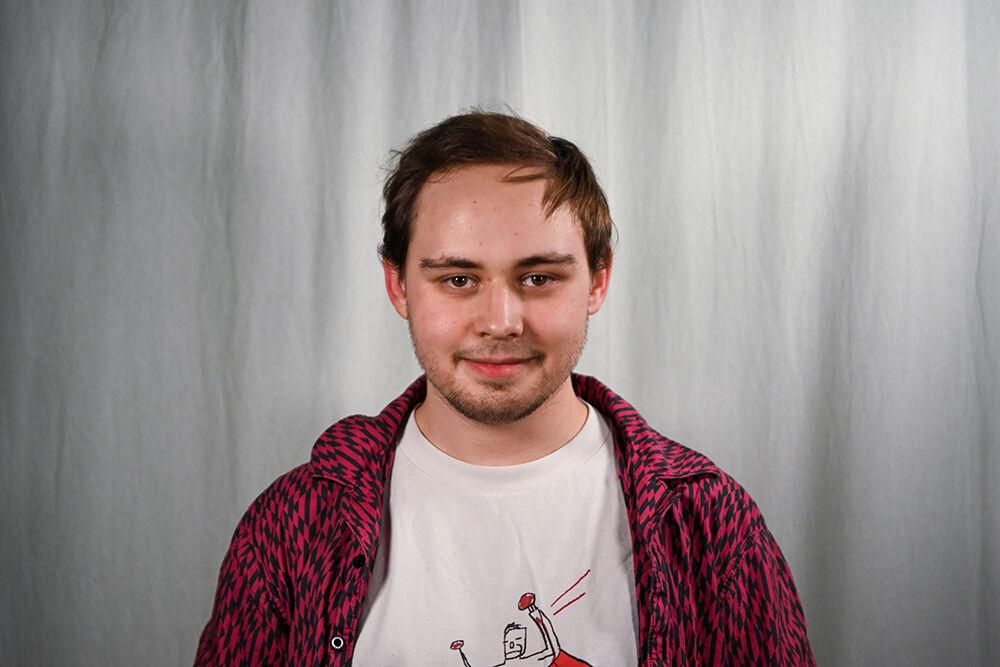I don’t always like introducing myself with pronouns. It seems counterintuitive, I know. But sometimes I feel a bit odd telling a room full of people how I’d like to be referred to. Not because I’m against the practice, but because it feels like a very revealing statement.
I still do it because I know it’s not just about me. It’s about giving everyone else in the room a means of referencing me and making those who have questioned their gender more comfortable. But it leaves me to wonder, what exactly do pronouns represent?
Robin Dodsworth, a professor of linguistics here at NC State, said there’s a lot of reasons why someone may choose to introduce themselves with pronouns.
“That’s probably because they don’t want to be misgendered, or they want to support other people who state their pronouns and they want to normalize that practice,” Dodsworth said.
In this way, expressing pronouns can be a means of asking to be referred to in a preferred way, not completely dissimilar to how I go by Will, despite my government name being William.
In a similar vein, Haley Kinsler, a graduate student studying linguistics, said that language is a tool for self-expression.
“There are cisgender people who can choose to use they/them pronouns, and likewise, a trans person might not use the pronouns that you would expect them to based on their gender expression or identity,” Kinsler said. “You can use pronouns that don’t necessarily align with what people would expect you to use; I think that’s a route, like a site for play.”
Maybe pronouns don’t appeal to you in this way. While I can certainly understand how this may be helpful for someone, I don’t always want to disclose my gender.
“But, you know, wouldn’t it be great if we lived in a situation where somehow stating your gender was not even necessary,” Dodsworth said. “That’s one thing, moving beyond gender as a set of categories.”
For clarity, this is not — in any way or form — dismissing the practice of sharing pronouns. Rather, I’m saying the practice only works when we do it because we want to.
While I identify as a man and have never had the experience of questioning my gender, I would much rather be perceived as just some guy. It doesn’t feel essential for me to be called or thought of as a man in the minds of everyone I meet. Frankly, I hope most people I meet don’t think of me that often anyways, but if they do, I’d rather be a dude or a guy, not necessarily a man.
Kinsler said by normalizing the practice of pronouns, people begin to reconsider things more and more.
“It kind of brings it to the forefront of people’s minds that pronouns aren’t this natural thing that we should just assume about everybody by looking at them,” Kinsler said. “It’s something that we can ask for. It’s something we can share with each other.”
When pronouns become something we offer to people, it becomes another avenue to build understanding and connect with people. When we refer to people the way they want to be referred to and allow that for ourselves, we create connection and a sense of belonging.
And the more we do it, the more it will change and grow. Historically speaking, this would be entirely expected. Pronoun change on a wide scale has been happening for a long time.
“Even if you just go back as far as Shakespeare, you see that pronouns are different, especially like second-person pronouns are different,” Dodsworth said. “And if you go back further than that, you find out it just gets more and more and more and more and more different, you know, the further back you go.”
Dodsworth expects pronoun usage to keep shifting.
“I think that pronouns and other aspects of language are going to just keep changing, not exactly to keep up with the way we think about gender, but to reflect, in some way, societal change,” Dodsworth said.
It should not be so impossible to imagine that change is inevitable and that we might want to steer the ship towards being more accepting and less presumptuous about each other. I don’t want to be seen as being gendered, despite feeling like I do have a gender, but I also don’t want to explain that to everyone I meet. But if I participate in a practice that makes more people feel comfortable, I know it’ll grow and become something more encompassing.














